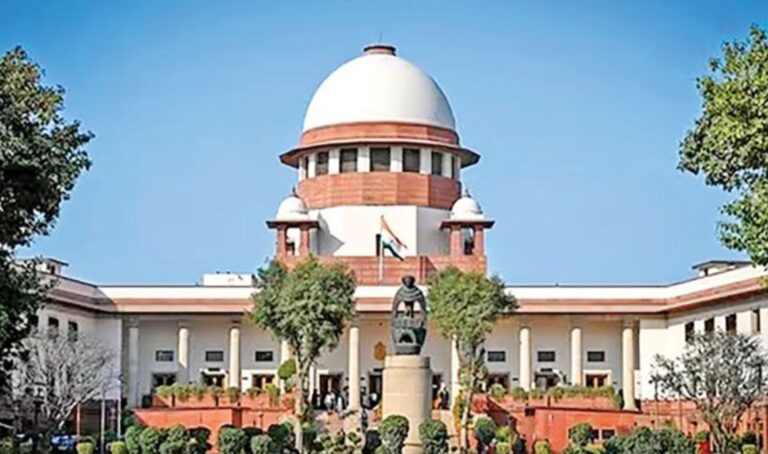One of the most debated issues under the Indirect Tax regime has been whether Input Tax Credit (ITC) can be denied to a purchaser when the supplier’s registration is cancelled retrospectively or the supplier fails to deposit the tax collected. Tax authorities across India have often invoked retrospective cancellation to disallow ITC, alleging that the underlying transactions were not genuine or that tax was never paid to the government.
This practice created widespread uncertainty for bona fide purchasers, who had acted in good faith and conducted transactions with registered dealers at the time of supply. Many taxpayers found themselves penalized for no fault of their own, leading to a series of legal challenges.
In a landmark judgment delivered on 9 October 2025, the Supreme Court of India in Commissioner of Trade & Tax, Delhi vs. M/s Shanti Kiran India Pvt. Ltd. settled this long-standing controversy. The Court held that ITC cannot be denied to purchasers who buy goods from suppliers validly registered on the date of transaction, even if the supplier’s registration is later cancelled retrospectively or the supplier fails to remit the tax.
This ruling reaffirms the principle that genuine taxpayers should not suffer for the defaults of others and that the department’s recourse lies against the defaulting supplier, not the buyer.
Case Title
Commissioner of Trade & Tax, Delhi vs. M/s Shanti Kiran India Pvt. Ltd.
Court: Supreme Court of India
Date of Judgment: 9 October 2025
Civil Appeal No: 9902/2017
Background and Facts
- M/s Shanti Kiran India Pvt. Ltd. had purchased goods from certain registered dealers in Delhi.
- At the time of purchase, these suppliers were validly registered under VAT and the transactions were duly tax-invoiced.
- Subsequently, the department cancelled the suppliers’ registrations retrospectively, alleging tax evasion and non-deposit of tax collected.
- The department denied ITC to Shanti Kiran India Pvt. Ltd. on the ground that the sellers’ registration was invalid retrospectively, rendering the purchases ineligible for credit.
- The Delhi High Court ruled in favour of the taxpayer, directing that ITC should be granted after verification of genuineness of transactions.
- The Tax Department appealed before the Supreme Court.
Issues Before the Supreme Court
- Whether a bona fide purchaser is entitled to ITC if the supplier’s registration is cancelled retrospectively?
- Whether ITC can be denied on the ground that the supplier failed to deposit tax with the government?
- What is the extent of buyer’s responsibility to verify the supplier’s compliance status?
Arguments
Revenue’s Argument
- ITC is available only when tax has actually been deposited with the Government.
- Since the suppliers’ registrations were cancelled retrospectively, the transactions should be treated as if they were made with unregistered dealers.
- The purchasing dealer must ensure that the supplier has paid tax before claiming ITC.
Assessee’s Argument
- At the time of purchase, all suppliers were validly registered, and invoices were genuine.
- The purchaser has no control or mechanism to verify whether the supplier has deposited the tax.
- Denial of ITC to a bona fide buyer for the default of another person is against the spirit of Tax law, which allows seamless credit.
Supreme Court’s Findings
- The Court observed that there was no dispute that the suppliers were registered on the date of transactions.
- Once the purchasing dealer has verified registration, paid consideration including tax, and received goods, ITC cannot be denied.
- Retrospective cancellation of the supplier’s registration cannot invalidate past transactions made in good faith.
- The proper course of action for the department is to proceed against the defaulting supplier, not to penalize the bona fide buyer.
Quote: “There is no dispute that on the date of transaction, the seller dealer(s) were registered… we do not find a good reason to interfere with the order of the High Court directing for grant of ITC benefit after due verification.”
Judgment
The Supreme Court dismissed the Department’s appeal and upheld the Delhi High Court’s order allowing ITC to the purchaser.
The Court reaffirmed that bona fide transactions should not suffer due to the subsequent misconduct of suppliers.
Legal Principle Established
- ITC cannot be denied to purchasers who acted in good faith and purchased from registered dealers.
- Retrospective cancellation of supplier’s registration does not automatically nullify the purchaser’s entitlement.
- The onus of tax recovery lies on the department to act against the defaulting supplier, not the buyer.
Significance of the Ruling
- Provides clarity and relief to genuine taxpayers facing ITC reversals due to retrospective cancellations.
- Aligns with the doctrine of fairness and legitimate expectation.
- Likely to influence pending disputes where ITC was denied for reasons beyond the buyer’s control.
- Reinforces judicial consistency with earlier High Court rulings (e.g., Arise India Ltd., Quest Merchandising India Pvt. Ltd.).
Practical Takeaways for Taxpayers
- Always maintain documentary proof such as:
- Valid registration status of the supplier at the time of purchase.
- Tax invoice, payment proof, and goods receipt evidence.
- Copies of supplier’s return.
- These will substantiate bona fide intent in case of departmental scrutiny.
- Departments must refrain from blanket ITC denials and should verify actual transaction genuineness.
Conclusion
The Shanti Kiran India Pvt. Ltd. decision is a landmark affirmation of the principle that tax credit mechanism must remain fair and seamless. The ruling strikes a balance between revenue protection and taxpayer rights, ensuring that genuine buyers are not victimized for suppliers’ defaults.
